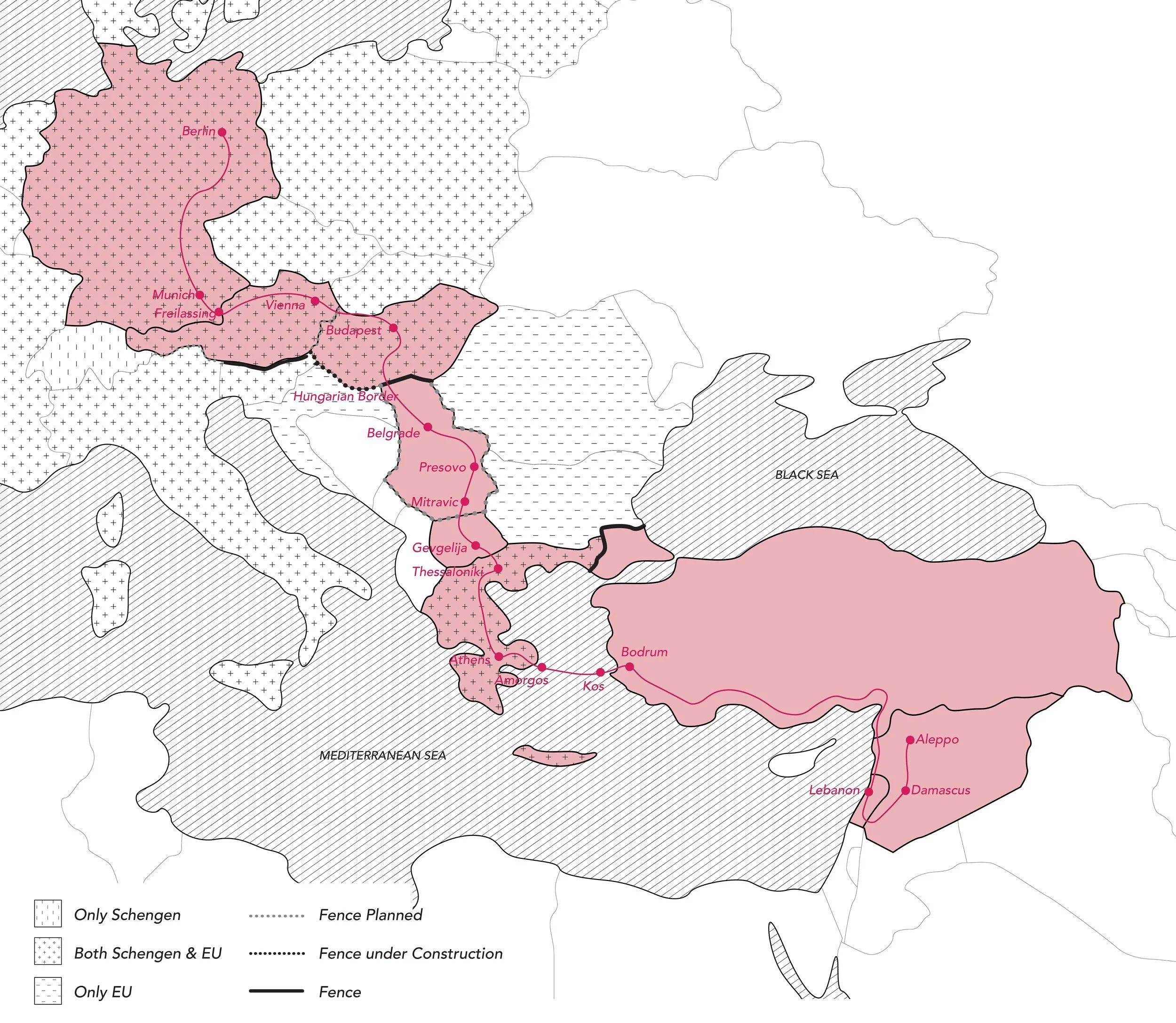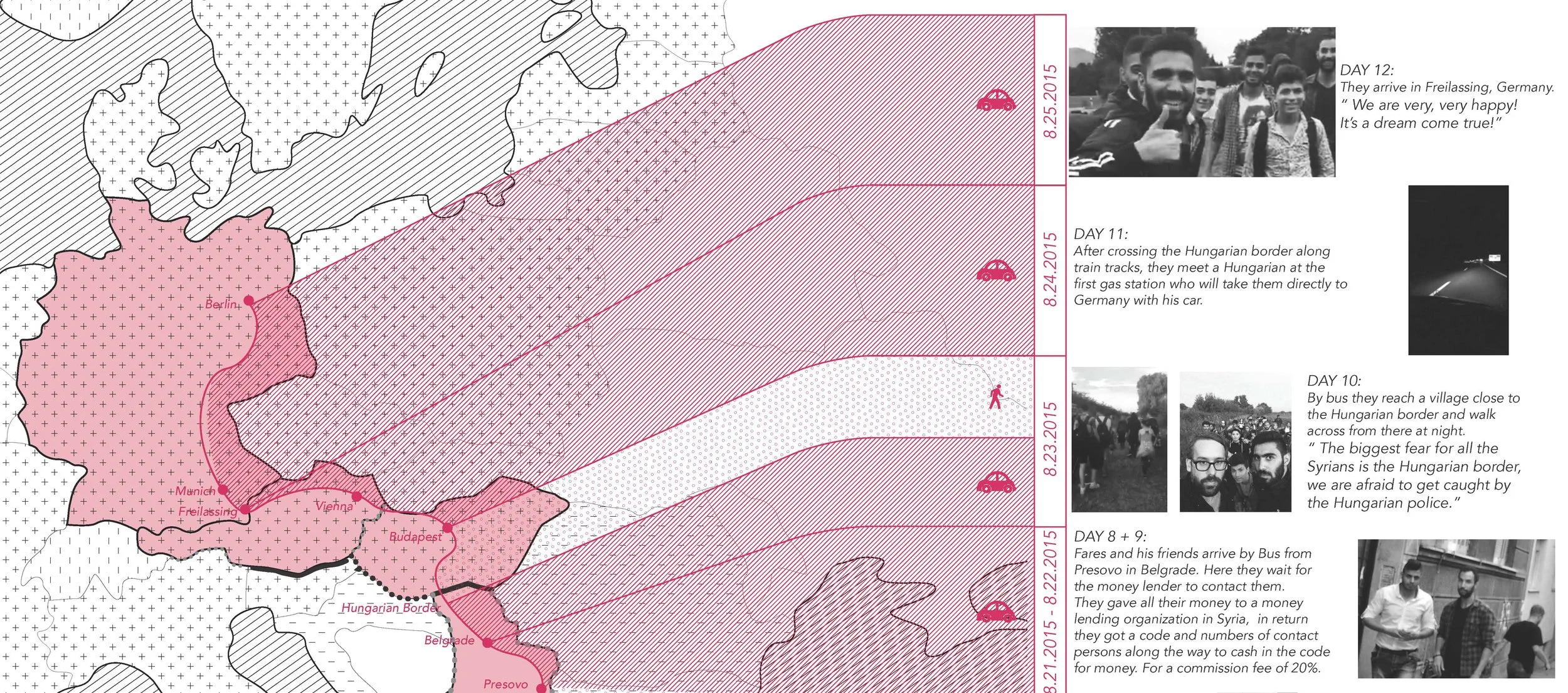
SPATIALIZING MIGRATION
POLICY IN
EUROPE
Research
Collaborator: Antonia Rudnay
This project examines the European refugee crisis through the personal journey of Feras, a 23-year-old from Aleppo, juxtaposed against the broader European political landscape. Amid rising anti-immigrant rhetoric, such as Viktor Orbán’s 2016 claim that refugees threaten Europe’s future, the research shifts focus from statistics to human experiences. By tracing Feras’s route from Turkey to Germany, the project explores how laws, political climates, and policies shape refugees’ experiences—highlighting fear, safety, and stark differences in hospitality across national borders.
The study maps Feras’s journey, detailing modes of transportation (rubber boats, ferries, cars, buses, walking), and interactions with border police, locals, smugglers, and other refugees and juxtapose them with international and national refugee regulations. Through investigating the effects and impacts that the political agendas have on the individual journey, the research highlights the richly textured experience and extreme differences in hospitality an asylum seeker faces as he/she crosses national borders. It underscores the critical need for a human-centered approach to migration, revealing how fragmented policies and political agendas deeply affect individuals. Ultimately, the project sheds light on the personal stories behind the crisis and calls for cohesive solutions to address Europe’s migration challenges.
This research was done as part of the The Space of Conflict class taught by Marianne Potvin at the Harvard GSD. It was published in Scenario Journal 06: the Migration Issue in July 2017.





